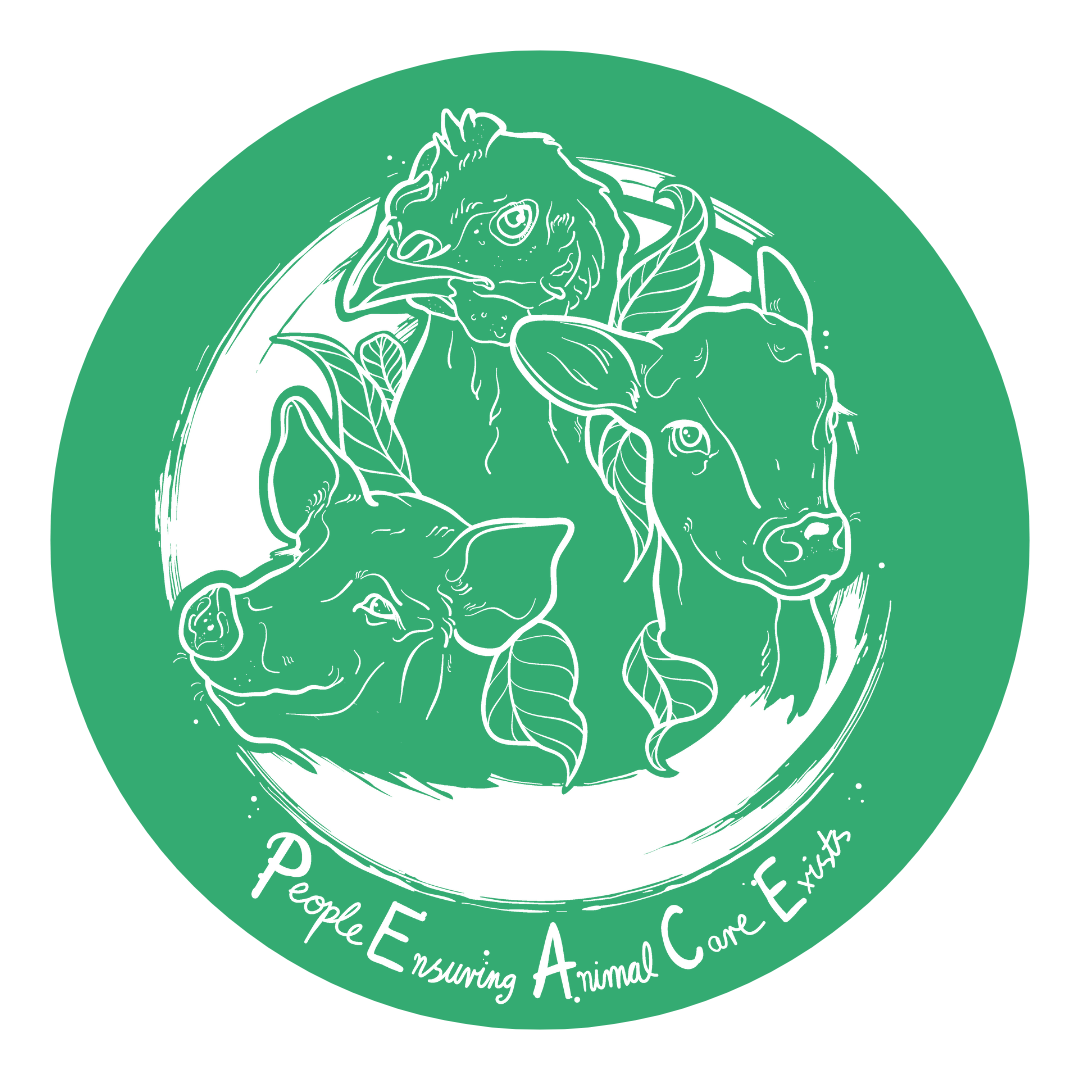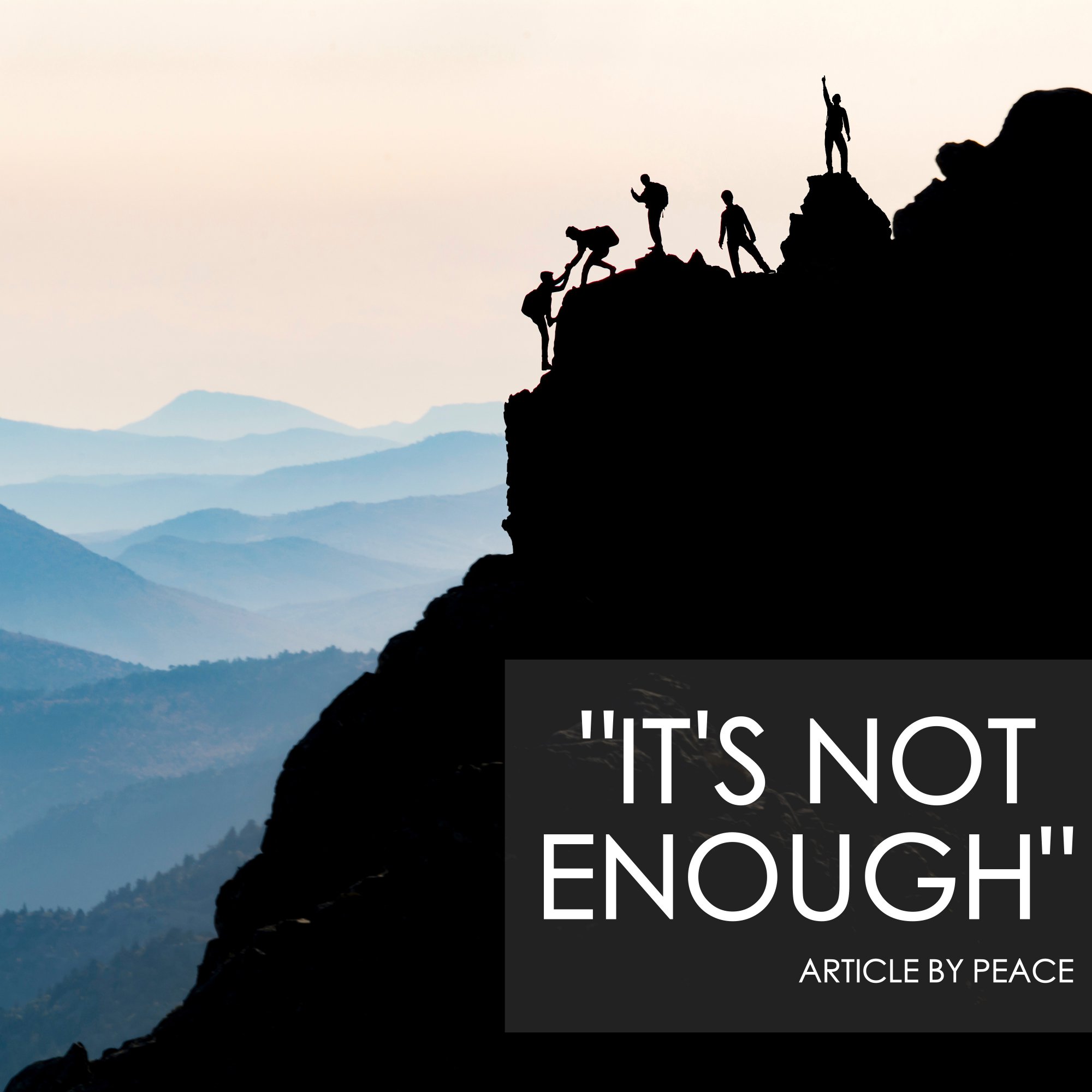
“I’m not doing enough. I can do more. Animals are suffering and dying everyday; if I can do more, then I should and must do more.”
When we stop and consider the full scope of animal suffering globally, it can be overwhelming. Billions of animals are slaughtered every year. How can we rest? How can we justify paying for that coffee? Or the meal at the new funky vegan cafe rather than preparing a meal at home so we can contribute more to farm animal sanctuaries and causes that need it? If animals continue to suffer and die, then it must mean we are not yet doing enough. Right?
We must remember two things: how we can be effective, and that we are not alone.
We cannot be effective if we disappear. The reality and effects of burnout are well known, and if you’ve spent any measure of time in volunteer or activist circles then you are no doubt familiar with it. But we also need to recognize the effects of overworking ourselves before that point. There are numerous studies on productivity in the workplace that found that after a tipping point (40-55 hours per week) we start to become significantly less productive, and that this can have significant negative impacts on physical and mental health (1)(2)(3). This reaches not only “diminishing returns” (less done for every extra hour worked) but can also reach levels where we get less done overall when we work longer, e.g. getting less done in 60 hours than in 40.
Not only do we become less effective when we push ourselves too hard, we also start to neglect our health and well-being. We cannot focus properly and we make poor decisions or mistakes. We don’t eat well, sleep well, or get proper exercise. We start to become irritable and short-off, harming relationships with friends and family and straining our communities. In trying to push ourselves harder and harder to make progress, we start to actively harm progress.
We may think that we are the exception. That we can manage this. And for a while, that may be true. We may have experiences of pushing hard through an urgent issue and coming out the other side having made it. I can admit to having done this myself on multiple occasions. There are times in my life where I’ve been uniquely positioned to help fix time-sensitive problems and I’ve pushed myself with long hours over multiple days or the span of a number of weeks to make it happen. But this cannot be sustained. We must take time to recover. We are not invincible. I am not invincible. You are not invincible. By slowing down when needed, we can actually go faster and further.
This extends beyond how hard we push ourselves and into what we are trying to do in the first place. We all have a finite amount of time and resources available to us, and we all have our own set of unique skills and strengths. When we try to do everything, we spend less time doing what we do best. This is not to say that I should not ever try to expand my skills, or that if I am a graphic designer I should only do that and never volunteer for a cleanup day at a farm animal sanctuary. But if I am a carpenter, then on that sanctuary work day I can help build fencing and enclosures rather than mucking out a stall. If I am a lawyer that is fortunate enough to earn well, I can offer discounted services to farm animal sanctuaries or activists in need of legal representation and donate generously to support them. If I run a farm animal sanctuary, I am in the unique position of providing a snapshot of what our relationships with animals could be like across the world, and can provide the public an opportunity to relate to farmed animals in a new and healthy way and to be touched by that experience.
We also need to be mindful to not hamper our ability to offer our unique strengths and abilities. If I have a well paying job, then selling my home, donating all of my savings to farm animal sanctuaries, and quitting my job to go work full time on a sanctuary, while admirable, may not be the best use of my skills and position compared to continuing to be able to support those sanctuaries financially. There are those in the community who have the knowledge and willingness to take greater risks to themselves in exposing abuse and mistreatment in animal agriculture operations, through undercover investigations, civil disobedience, and other direct actions. Activist movements owe a great debt to these individuals that are willing to face threats, harassment, imprisonment, and other retaliation such as loss of income to expose injustice. But if there are individuals willing and able to take on that work, and I am a lawyer able to provide expert legal services to the sanctuary and activist communities, also participating in those actions could mean losing one of a very small group of people able to provide that specific support to the community. Running a farm animal sanctuary takes a lot of know-how, an incredible amount of dedication, and commitment to the safety and wellbeing of the animals in one’s care. If I run a sanctuary and risk losing my safety, freedom, or income, we lose the skills and contributions of one of the very few people in the community that are able to play this crucial role for animals, and animals in their care are directly impacted and disrupted.
So let us consider:
“I’m not doing enough. I can do more. Animals are suffering and dying everyday; if I can do more, then I should and must do more.”
If animals are still suffering and being killed, then yes: the work is not yet done. But we cannot do this alone and neither should we. The task is massive. Even if we never sleep, the work will still remain but now we are destroying ourselves in the process. We do not do this by simply doing more and more per day every day. We do this by not giving up. We do this by recognizing that we are not invincible, that we need rest, taking that rest, and then carrying on tomorrow. The world may not change as quickly as we want it to, but change is happening, and we need to take care of ourselves to ensure that change continues. There are myriad different tasks that need to happen and roles that need to be filled. Not a single one of us is capable of doing it all. So we each contribute our skills and talents and time and insight and knowledge. The strength in community is not in developing an army of superhumans that is each an expert in doing every single thing, but in each person bringing their individual strengths and talents and in so doing freeing others to do the same.
We are not alone. We do not need to and should not try to do it all alone. We are stronger together.
LINKS
(1) The Economics of Crunch Mode

